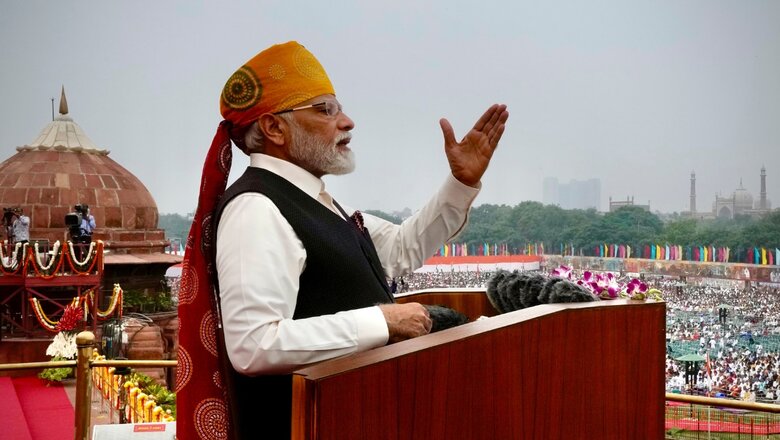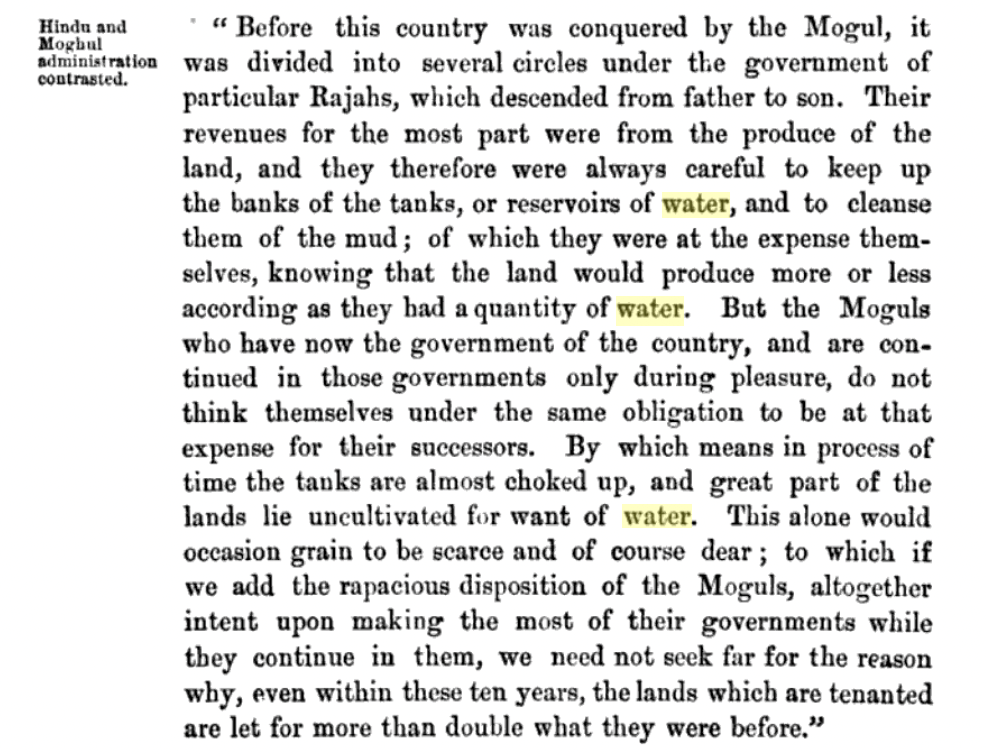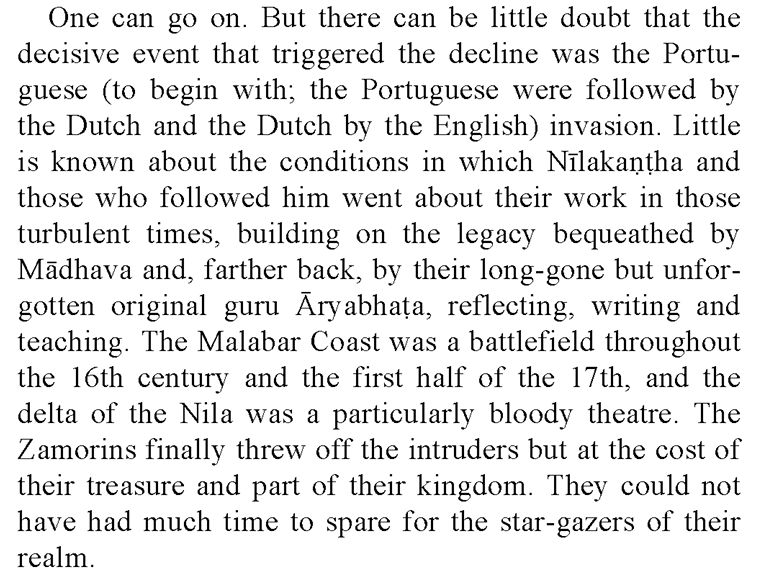
views
Prime Minister Narendra Modi’s Independence Day speech at the Red Fort last week had a curious historical reference to thousand years of rule by invaders, spanning the Mughal period to the colonial British era. The remarks by the prime minister drew predictable responses from across the political spectrum but it was interesting that he sought to place these remarks in the context of how history would judge 21st century India a thousand years down the road. Seeking to place emphasis on the choice to be made by the citizens in the general elections of 2024, Narendra Modi’s speech underscored how today’s decisions will have a bearing on the future.
While the reference to the thousand years of history has been variously interpreted, it would be in order to appreciate that the remark goes well beyond the communal polemics of present-day politics. Specifically, the reference has to do with long-term societal costs spanning centuries, resulting from myopic decisions borne out of short-term political considerations. These long-term societal costs are best understood by the damage successive foreign invasions had caused to both institutional systems and societal practices rooted in native Indian traditions.
Two illustrative examples of such institutional systems and societal practices that suffered devastating consequences due to foreign invasions will best highlight this aspect.
The first illustrative example has to do with the traditional methods of water conservation. With climate change posing a grave challenge to water sources across communities, Prime Minister Modi’s Mann Ki Baat has, over the years, maintained a consistent focus on water conservation. A key aspect of his messaging on water conservation on Mann Ki Baat, as highlighted in my recent book ‘Collective Spirit Concrete Action’, is his invocation of India’s traditional methods of water conservation and the significance attached to water as a resource within Indian culture.
To underscore the same, PM Modi has drawn from several ancient sources to quote specific verses and examples of water conservation. However, these ancient Indian traditional methods of water conservation suffered a devastating disruption during the medieval era of foreign invasions, the aftermath of which continues to impact agriculture and access to drinking water in several parts of India. The book ‘Early Records of British India’ by James Talboys Wheeler published in 1878 reveals a letter written in 1733 that observes the impact of medieval-era devastation of traditional water bodies.

A second illustrative example comes from Kerala and the legendary tradition of mathematicians. Madhava of Sangamagrama, who lived in the 14th century, made seminal contributions to the field of mathematics and astronomy as documented in the Malayalam work ‘Yuktibhāṣā’ by Jyesthadeva, a successor student of the Kerala School of Mathematics. Specifically, of note, are Madhava’s contributions to infinite series and trigonometry, laying the foundation of what is modern-day calculus. While Newton and Leibniz are credited with the development of modern-day calculus, the underlying methods were expounded by Madhava more than a couple of centuries prior. The invasion of the Malabar coast by Portuguese colonisers saw the devastation of the Kerala tradition of mathematics. The most incisive account of Madhava’s contributions and the legacy of the Kerala tradition comes from Dr PP Divakaran, formerly with TIFR and the Inter-University Centre for Astronomy and Astrophysics. His detailed article titled ‘Calculus in India: The Historical and Mathematical Context’ appeared in the Special Section on “Mathematics in India”, Current Science, Vol 99, in August 2010. His concluding remarks drive home the point of the devastation caused by the Portuguese:

These are but a couple of illustrative examples of the vast societal scale damage resulting from the devastation of Indian institutional systems, methods and practices spanning a thousand years, the price of which India continues to pay as it reclaims its geopolitical space in the world order, rebuilding its scientific and technological prowess, regaining its economic strength and restoring its socio-cultural vibrancy.
At this critical juncture, we are once again witnessing foreign actors attempting to undermine the integrity of Indian democracy, aided and abetted by domestic agents who are guided by their narrow political interests and short-term thinking. As India heads into the 2024 general elections next year, the decisions Indians make will have long-term consequences. Future generations of Indians a thousand years down the road will sit in judgement of these choices that will shape the trajectory of India over the next two decades on whether it emerges as the world’s third-largest economy and whether it realises the goal of a fully developed society by 2047. It is with this perspective one must assess the remarks made by Prime Minister Narendra Modi on Independence Day as he had sights focused both on the rearview mirror on the road traversed as well as on the horizon ahead for the world’s largest democracy.
The writer is the former CEO, Prasar Bharti. Views expressed in the above piece are personal and solely that of the author. They do not necessarily reflect News18’s views.



















Comments
0 comment